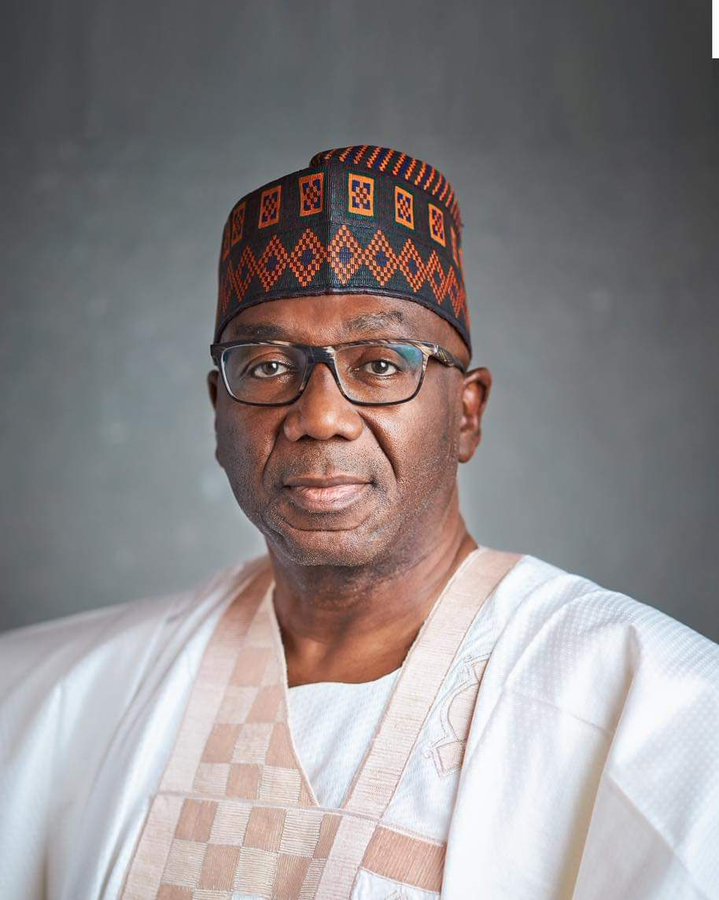
Both the Federal Government and the World Bank commended the governor for providing quality leadership and platforms for livestock value chain production and commercialisation in the state.
The governor said his administration had invested in the development of the livestock sector to maximise its potential, particularly in beef and dairy production.
“Kwara has a comparative advantage in all areas of livestock production, particularly in beef and dairy production. It serves as a form of income and wealth for families to better access financial services. It is a major form of financial instrument for families, especially now that we are talking about financial inclusion, improvement in the standard of living, and improving our GDP in the state.
“This is why our focus has been on developing, upgrading, and transforming the economy in terms of livestock development. This has had positive impacts on smallholder farmers while also reducing farmer-herder conflict in the state.
“We aim to ensure that the smallholder farmers become commercial farmers so that they can respond to the demand for quality food from the urban centres, climate change, contribution to the global economy and also ensure that families have an adequate supply of animal protein and improved livelihood.
“For these reasons, our administration keyed into programmes like the special agro-processing zone and livestock productivity and resilience support project that we are flagging off today.
“Indeed, the utmost objective is in line with our administration’s vision of uplifting the vulnerable, improving the activities of smallholder farmers, providing critical infrastructure for modern livestock production and also mitigating the clash between pastoralists and crop farmers,” the governor was quoted to have said at the flag off in a statement on Tuesday by his spokesman, Rafiu Ajakaye.
AbdulRazaq called for improved coordination and synergy for the design and implementation of SAP-Z and L-PRES, given the similarities of the projects.
“We should also work alongside RAAMP (Rural Access and Agricultural Marketing Project) to make sure we deliver. We will strive to engage more progressively to make sure we deliver this project on time,” he added.
The event was attended by the Chief of Staff, Mahe Abdulkadir; Commissioner for Agriculture Oloruntoyosi Adebayo Thomas; Senior Agricultural Economist World Bank Chidozie Anyin; Team Lead Livestock Productivity and Resilience Support Project; Emmanuel Sene; National Project Coordinator for L-PRES Sanusi Abubakar; and State APC Chairman Prince Sunday Fagbemi.
Oloruntoyosi said Kwara has hit positive milestones in the project because of the commitment of the governor, adding: “It is not every state that has the privilege of high profile projects like PRESS and SAPZ, but due to the visionary leadership of His Excellency and the processes and policies that he has put in place, we are able to qualify and meet the very stringent requirements of these developmental projects.”
She said the state was aligning all its “livestock transformational projects, including RAAMP, as they are dependent on one another. This will enable us to deliver the most impacts to Kwarans”.
Abubakar added that Kwara is among the five states being visited during this implementation mission out of fifteen states on the programme.
“This is in consideration of early fulfilment of readiness and eligibility criteria as stated in the project documents. Apart from the fact that Kwara has the largest disbursement of three million dollars, it is also the first state to appreciate disbursement twice since the inception of this project, having already been disbursed in the last quarter of the year 2023,” he said.
“Your Excellency, our mission here in Kwara is for us to interface with the project implementation team at the state coordination office as well as the leadership of the Ministry of Agriculture and Natural Resources.
“We are very optimistic that Kwara will succeed in this regard, given the enabling environment granted by your administration and the enormous livestock potentials in the state, such as arable land animal feed production, large vegetation for grazing and considerable livestock population. This is also in addition to peaceful co-existence that exists among various ethnic groups in the state.”




